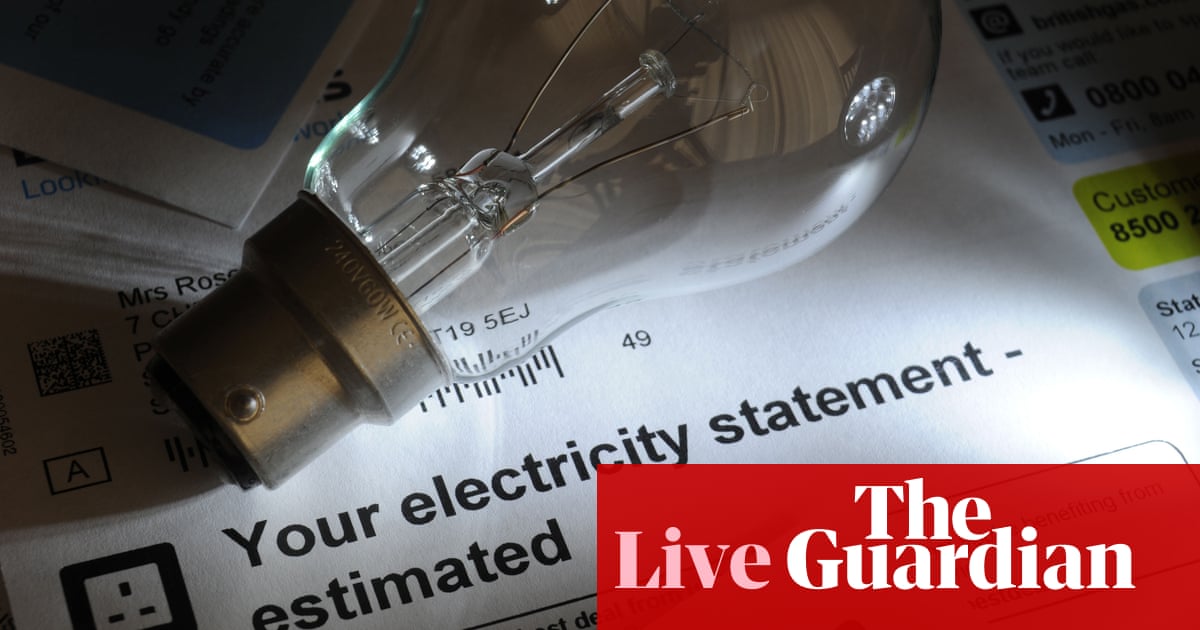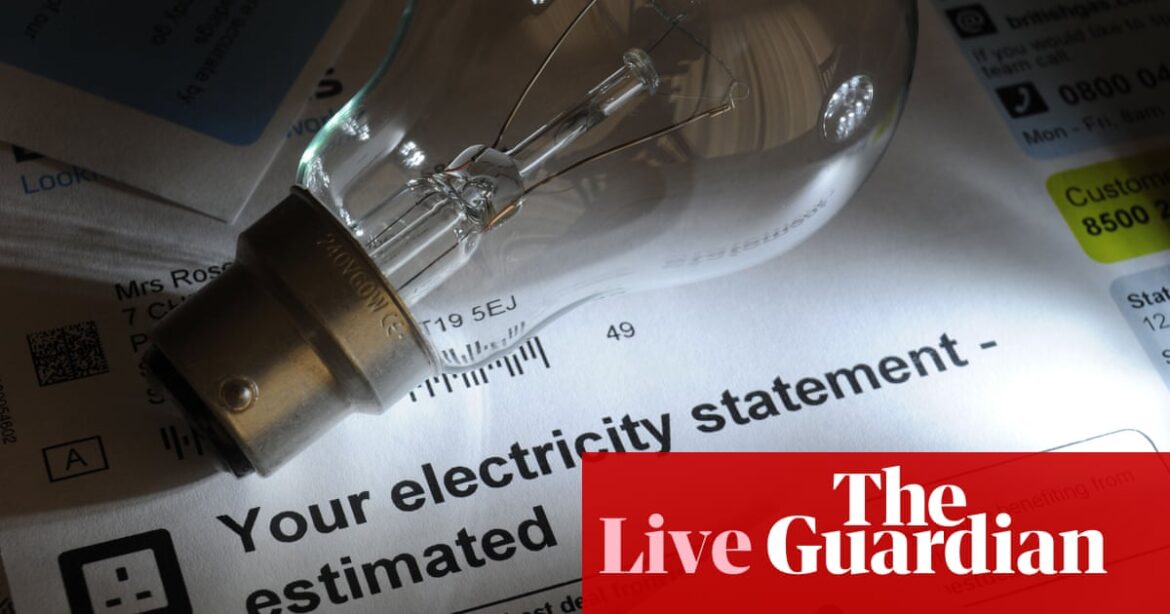
Last Friday, the month-ahead price of UK gas rose to a one-year high of almost 120p per therm.
Gas prices rose last week, after Austrian group OMV warned of a potential disruption to supplies from Russia. On Saturday, Gazprom did indeed stop supplies to Austria, after OMV won a €230m arbitration award against Russia’s state-owned natural gas company.
Looking further ahead, Cornwall currently forecast the cap will drop slightly in April 2025 and again in October 2025.
The agenda
-
8am GMT: Bundesbank President Joachim Nagel gives speech
-
10am GMT: Eurozone trade balance for September
-
3pm GMT: US Nahb Housing Market Index
Uswitch.com.
“This price hike would mean the average household on a standard variable tariff would pay 1% more on their rates from January, just at the time when households typically use the most energy.
“The price cap is supposed to protect consumers, but millions face paying more during the coldest months of the year.
Neudegg adds that customers can fix their bills below January’s predicted price cap level*, saying:
“There are now a range of fixed deals available that are significantly cheaper than the predicted price cap for January, so it is well worth running a comparison to see how much you could save. Right now, the average household could save up to £120 per year against the current price cap by switching to a fixed deal.
“Consumers who are worried about paying their energy bill should check what energy help they are eligible for, and contact their supplier who may be able to offer support.”
* – reminder: Cornwall Insight expect prices to drop in April and October, when the quarterly cap changes again.
This morning’s prediction of a small rise in energy bills in January will be “disappointing”, says Dr Craig Lowrey, Principal Consultant at Cornwall Insight, especially as the weather gets chillier.
“Our final price cap forecast for January indicates, as expected, bills will remain largely unchanged from October. Supply concerns have kept the market as volatile as earlier in the year, and additional charges have remained relatively stable, so prices have stayed flat. While we may have seen this coming, the news that prices will not drop from the rises in the Autumn will still be disappointing to many as we move into the colder months.
“Fuel poverty has occupied political agendas for years, with little long-term progress. This winter, millions of households say they will not heat their homes to recommended temperatures, risking serious health consequences. With it being widely accepted that high prices are here to stay, we need to see action. Options like social tariffs, adjustments to price caps, benefit restructuring, or other targeted support for vulnerable households must be seriously considered.
“Long-term, our transition away from the volatile global wholesale market toward sustainable, home-produced renewables can help to secure our energy future. Although the transition does require upfront investment, it promises lower bills down the line. The government needs to keep momentum on the transition while acknowledging that immediate support is essential for those struggling now. Inaction is a choice to leave people in the cold.”
At the end of September, Cornwall had expected the price cap would dip in January, but wholesale energy prices have been higher than hoped.
Last Friday, the month-ahead price of UK gas rose to a one-year high of almost 120p per therm.
Gas prices rose last week, after Austrian group OMV warned of a potential disruption to supplies from Russia. On Saturday, Gazprom did indeed stop supplies to Austria, after OMV won a €230m arbitration award against Russia’s state-owned natural gas company.
Looking further ahead, Cornwall currently forecast the cap will drop slightly in April 2025 and again in October 2025.
The agenda
-
8am GMT: Bundesbank President Joachim Nagel gives speech
-
10am GMT: Eurozone trade balance for September
-
3pm GMT: US Nahb Housing Market Index
Source: theguardian.com



